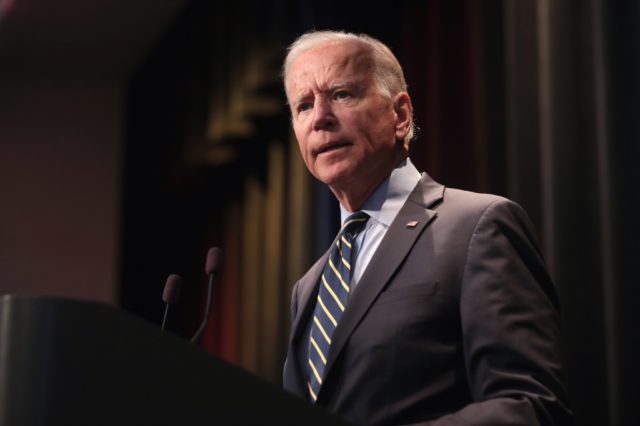By Akri Çipa

President Biden and his foreign policy team have a wide array of international challenges to address. The Balkans is not expected to be a high priority on that list. Nevertheless, the opportunity is there for the United States to bring change in the region.
In the 1990s, the United States played a primary role in the Balkan peninsula and spearheaded the successful intervention that stopped Serbia’s genocidal campaign against Kosova’s Albanians. With the support of the United States and other Western allies, Kosova declared its independence in 2008. Unfortunately, supported by Russia and China, Serbia refuses to acknowledge Kosova’s sovereignty. The EU-facilitated dialogue process, that was supposed to bring the parties together towards finding a lasting solution, has failed to deliver.
Meanwhile, malign foreign powers have exploited the dispute to meddle in Balkan affairs and hold the region back from integrating into Western organizations. Ongoing conflicts create avenues for influences that threaten the balances of the region. On the other hand, these threats are heightened by corrosive corruption, bad governance, and the lack of economic opportunities observed throughout the region. While Russia continues to be a destabilizing force, China is making important economic, trade, and diplomatic advances in the region. Strong American leadership is needed to halt these forces.
This was understood by the Trump administration. Secretary Pompeo’s appointment of Deputy Assistant Secretary Matthew Palmer as Special Representative for the Western Balkans and the following presidential appointment of Ambassador Richard Grenell as Special Envoy for the Kosova-Serbia dialogue were important signals about direct reengagement. However, despite grasping the lymphatic need for the US contribution, the Trump administration was unable to settle it.
Instead of backing down, the Biden administration should step up its efforts. By keeping the focus on the Balkans high, while correcting the evident mistakes observed in the most recent initiative, the new administration can succeed in bringing about much needed progress. To do so, President Biden needs to retain the Special Envoy position and appoint someone who has a deep knowledge of the region and grasps its dynamics.
Congressman Eliot Engel would be the perfect fit for the job. The Jewish legislator from the Bronx lost the primary against his Democratic challenger in June, however he has expressed his interest in giving a contribution in the Biden administration. With his vast foreign policy experience as a member and chairman of the House Foreign Affairs Committee, the 16-term Congressman understands like no other the US interests in the Balkans and how to advance them. He has been a determined voice on the most important developments in the Balkans since the beginning of the 1990s. Under his leadership, the House Foreign Affairs Committee devoted considerable time to the region. In fact, one of the last hearings he presided as the Chairman of the Foreign Affairs Committee was dedicated to policy recommendations for the next administration.
Critically, Congressman Engel understands the importance of US leadership. As he explained during the HFAC December 8 hearing, “American involvement in the Balkan Wars of the 1990s was the pinnacle of [the] post-Cold War power and influence. It also represented how such leadership can be put to good use.”
Congressman Engel is a strong believer in the transatlantic relationship and has always supported US-EU cooperation. This quality is pivotal at a time when everyone concurs that Western coordination is needed for the dialogue between Kosova and Serbia to succeed. The European block is their largest economic and trading partner and both countries aspire to join the union in the near future.
Lastly, Congressman Engel’s role in the dialogue between Serbia and Kosova would be critical to counterbalancing the eschewed position of the European Union. Both Josep Borrell, EU’s top diplomat, and his Special Representative for the dialogue, Miroslav Lajčák, originate from two countries – respectively Spain and Slovakia – that do not recognize Kosova’s independence. Despite expected Serbian skepticism, Congressman Engel’s engagement would serve to assuage this asymmetry and enhance the dialogue process. After all, guarantees will be needed to help the parties reach an agreement, as well as for its implementation.
Prior to the November elections, the Biden-Harris campaign made it clear that a President Biden would work with “the European Union to revitalize the dialogue between Kosova and Serbia.” They pledged to help facilitate a “stabilizing, just, and comprehensive settlement between the two countries that respects Kosova’s territorial integrity and achieves full mutual recognition.” The Biden administration must not miss the opportunity to succeed.
Akri Çipa is a Balkan expert and consultant. He holds a Master of Science in Conflict Resolution from Columbia University in New York. His articles have been published in the National Interest, Balkan Insight, Jerusalem Post, Euractiv, Brussels Times, and more. Twitter @AkriCipa. This piece was first published in Balkan Insider.
